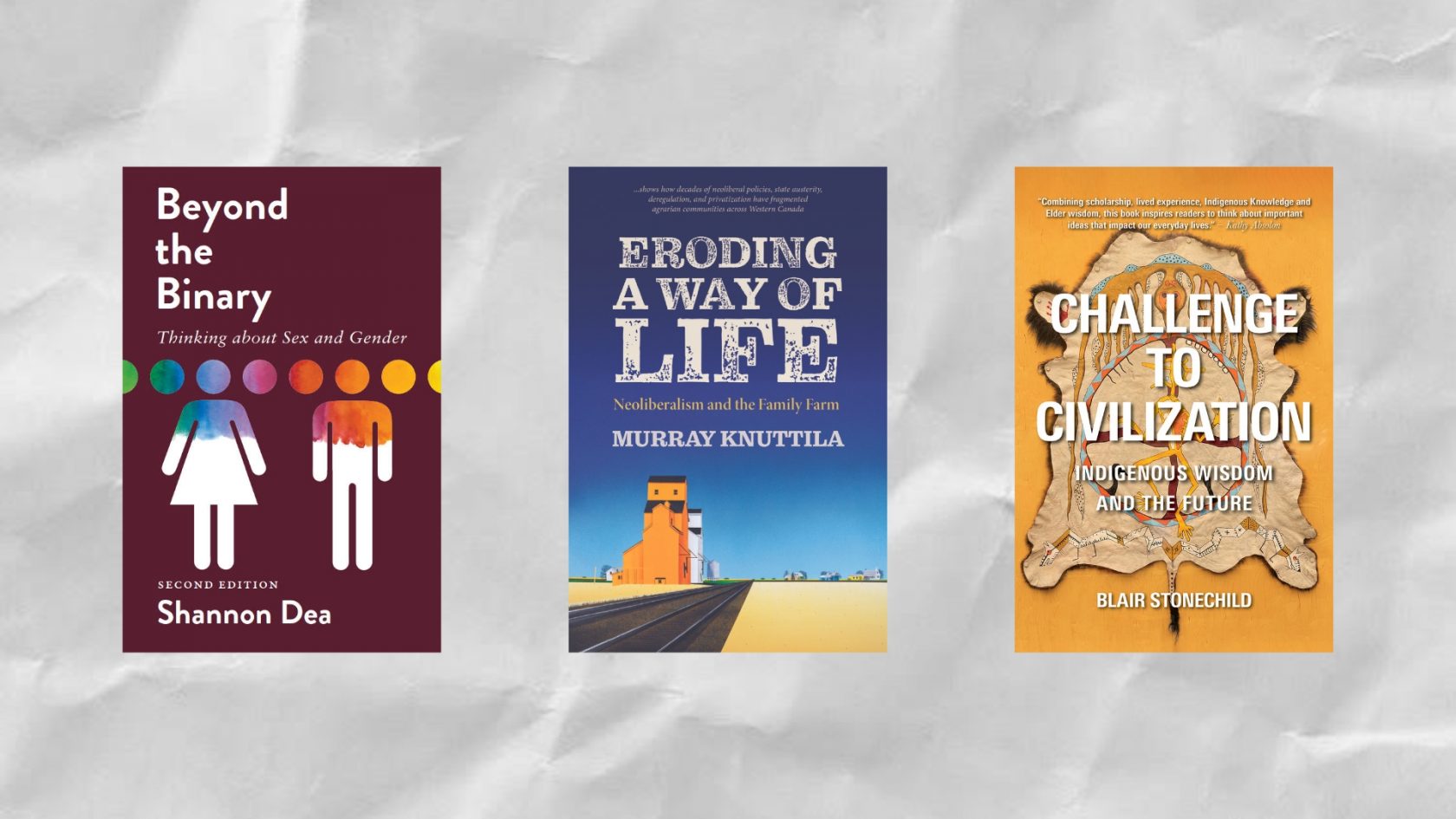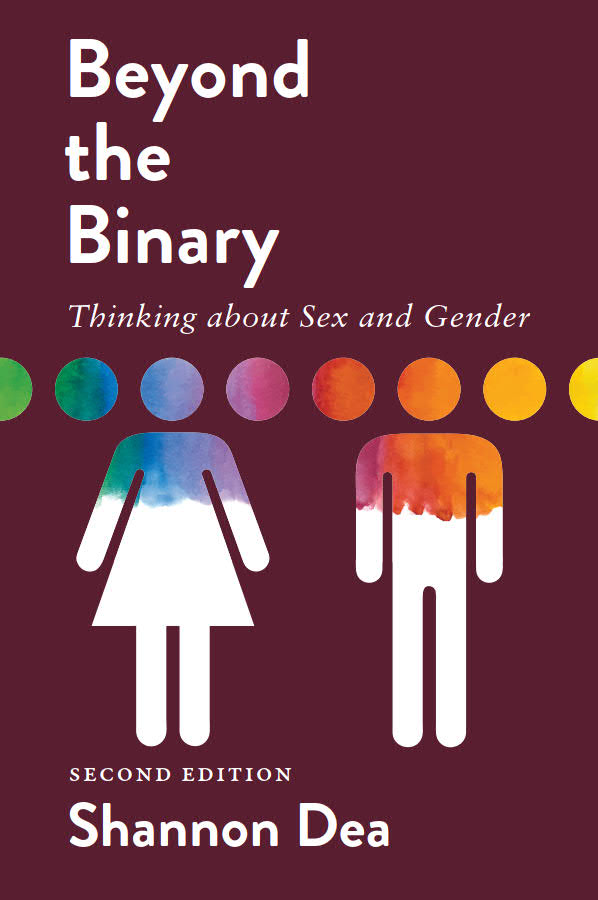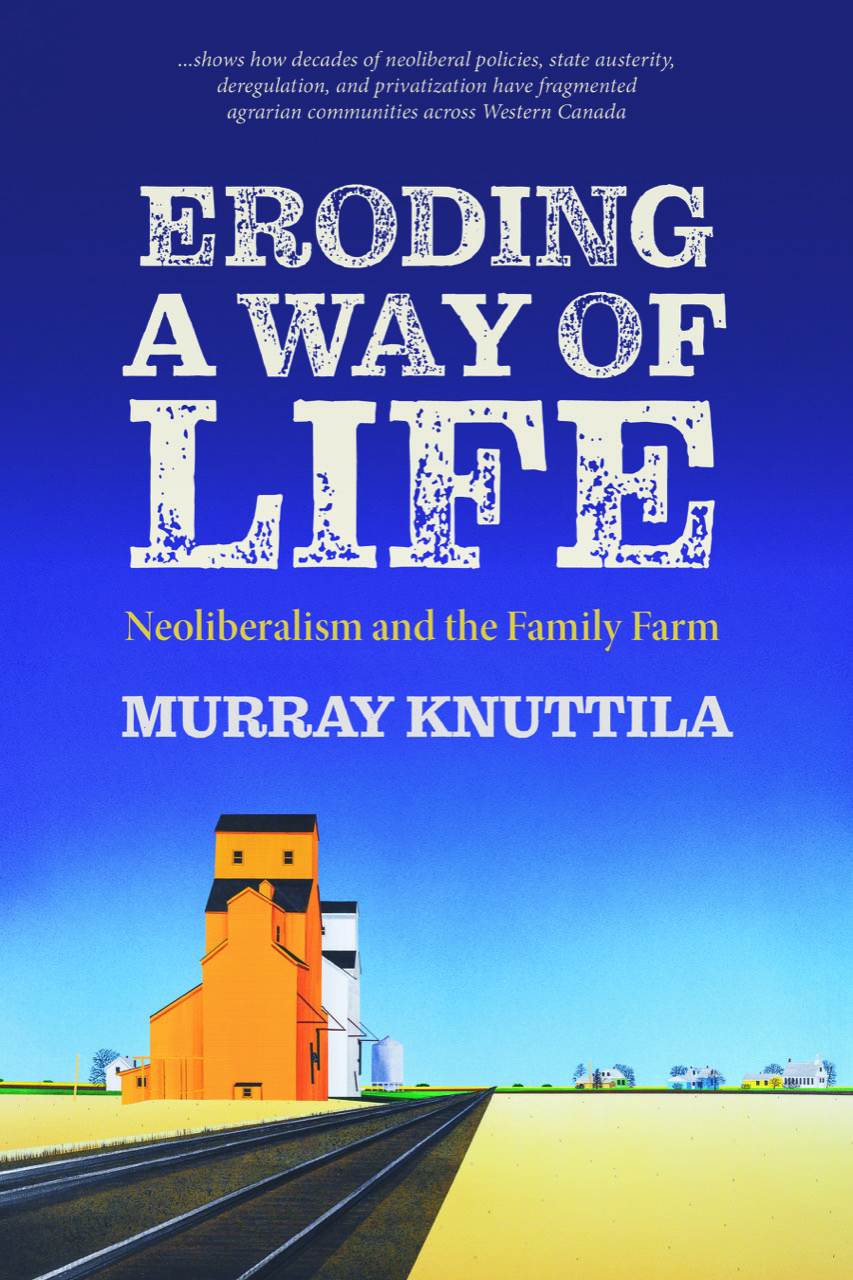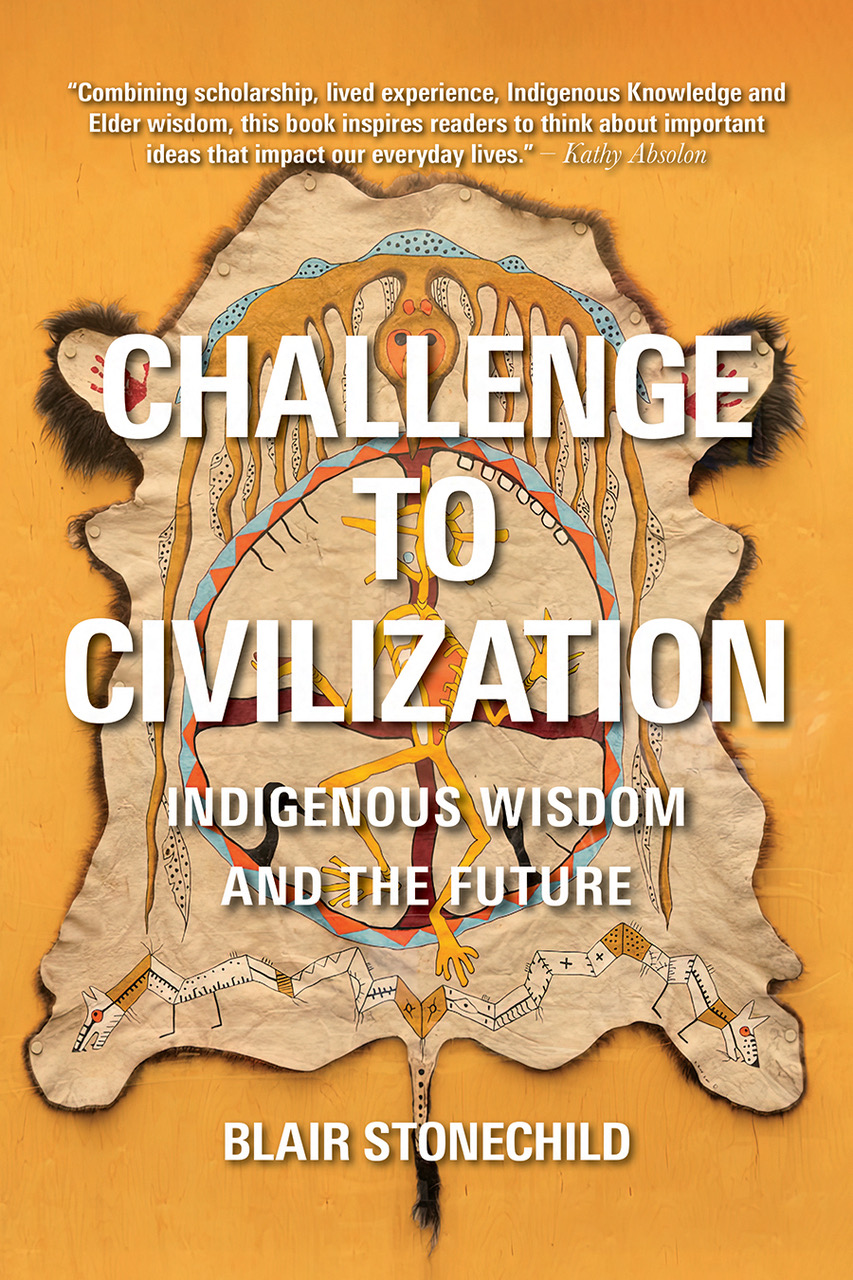Great new reads by U of R scholars.


In the new, second edition of Beyond the Binary: Thinking about Sex and Gender (Broadview Press, 2023), Dr. Shannon Dea invites readers from all walks of life to learn more about gender, sex, and pronouns from sources other than social media or the news.
Dea, dean of arts and philosophy professor, draws upon source texts ranging from 950 BCE to the present day to underscore the importance of context when discussing historically fluid concepts like sex and gender.
Beyond the Binary also includes a 10-page glossary of terms, and suggested supplemental resources help cultivate care and respect, as well as humour.
Rural Saskatchewan is undergoing a radical transformation marked by the disappearance of family farms. Between 1941 and 2021, the number of Saskatchewan farms declined by 75 per cent. Farmers forced off the land often blame themselves, but in his new book, Eroding a Way of Life: Neoliberalism and the Family Farm (University of Regina Press, 2023), professor emeritus Dr. Murray Knuttila offers an alternate perspective. He examines the emergence of prairie farming in the context of national and global economic, political, and social forces.
Federal government policies and actions, Knuttila shows, first encouraged the expansion of family farming, then supported and maintained them in the post-War era, only to subsequently allow unregulated and unconstrained market forces decimate them in the neoliberal era.


Challenge to Civilization: Indigenous Wisdom and the Future (2023, University of Regina Press) is the final book of a trilogy about Indigenous spirituality written by Dr. A. Blair Stonechild, a member of the Muscowpetung First Nation and professor of Indigenous studies at First Nations University of Canada.
In Challenge to Civilization, Stonechild uses an Indigenous perspective to reinterpret the history of the world, arguing that contemporary Eurocentric historians look back only 6,000 years as the beginning of civilization, erasing the preceding 194,000 years of Indigenous knowledge, wisdom, and experience.
Stonechild explores the ways that Indigenous spiritualty is critical to human survival, and coins the term ecolization to describe a situation where humans live in harmony with the natural and supernatural worlds, rather than continually exploiting and profiting from nature.












